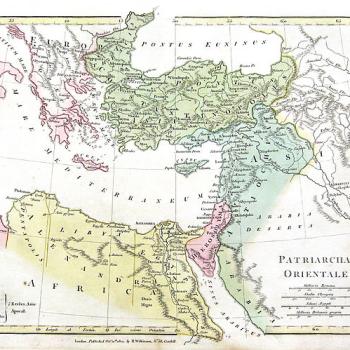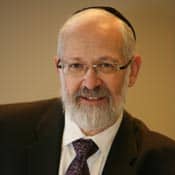What important bonds of friendship were formed in six decades of Jewish-Christian interfaith activity? Judging from last weekend, probably none.
Silence, more than anything else, moved Christians and Jews closer in the aftermath of the Holocaust. Church leaders, coming to grips with the enormity and bestiality of Hitler's Final Solution, had to deal with guilt. They understood the role that church-inspired anti-Semitism played in the centuries before the Holocaust, and they felt some long-distance guilt. Greater, local guilt came from their own silence. They had watched Hitler promise to exterminate the Jews, and observed each step toward the crematoria of Auschwitz. They spoke up in horror only when it was too late—after six million had been murdered.
They knew that they had slept on their moral watch. They had let G-d down in their responsibility to innocent human beings, and they had failed the Jewish people—despite the deep roots of Christianity within Judaism. They called for affirmative action to improve relations between the sister religions. The effort was sincere, and much good came of it. But they could not provide what Jews may have needed the most: genuine friendship and caring. When you care, you don't remain silent when your friend is in mortal danger.
Last weekend, Israelis and Jews around the world watched in horror a significant escalation in the campaign of Hamas—acting on direct orders from Iran, according to political analysts—to bring an end to the State of Israel. Over one hundred rockets were launched at civilian targets—not at "settlements," but at Israel's pre-1967 heartland. One million citizens—Jews, Christians, and Muslims—had to hunker down as death came hurtling toward homes, schools, and places of worship. A series of coordinated terror attacks killed more than a dozen, as a bus was ambushed, and anti-tank weapons struck civilian passenger cars.
A fragile cease-fire—almost certainly temporary—was put together after a few days. Now only a few rockets each day are heading toward Ashdod, Beersheba, and Ashkelon. Is that supposed to be tolerable? Life, though, has changed for another million citizens of Israel, who now have firsthand experience with the seriousness with which Hamas and Hezbollah will pursue their goal of ridding the Middle East of all non-Arab presence and influence.
American media paid little attention to the scope of the attacks—at least until Israel took out a handful of terrorist leaders. Perhaps they were too preoccupied with Wall Street, Libya, and Katy Perry.
Church leaders, however, read the news carefully, even on weekends. The liberal churches—the ones who had initiated interfaith activity after the Holocaust—have been unanimous in their silence. It matters not in the slightest whether crying out in protest would make any difference. From genuine friends, you expect genuine concern and commiseration. Decades of interfaith activity have yielded photo-ops and high-minded rhetoric . . . but not friendship.
Jay Leno may have said it best. "Go through your phone book, call people and ask them to drive you to the airport. The ones who will drive you are your true friends. The rest aren't bad people; they're just acquaintances." If "interfaith partners" will not even cry out in outrage as others try to pound you to oblivion, what good are they?
Israel will do what it has to do, ever more conscious of whom it can count on, and whom it must ignore. Groups like the World Council of Churches (the largest umbrella group of liberal churches, it has been silent before every existential threat to the State of Israel) are once again practicing their benighted preference for the gods of PC over the G-d of morality. By not even pretending to be evenhanded or concerned with Israel's survival, these church groups will insure the deaths of many more Arabs than they could ever protect, because Israel's certain response will come with that much less restraint, convinced that they have to go it alone.
Not entirely alone, actually. During the Holocaust, while large church groups remained silent, churchgoers—laypeople and clergy—contributed the largest number of heroes who risked (and often gave) their lives to save innocents. The Jewish people will not forget the voices of those like Dietrich Bonhoeffer, who spoke up eloquently, and paid for it with his life. (Nor will they forget his assessment that those who spoke up were too few and their voices too muted.)
Now as well, Christian voices supporting Israel—both conservative and liberal—show the sharp divide between authentic Christian conscience and the spinelessness of vast parts of Christian leadership. Glenn Beck will continue to advocate for Israel as America's only democratic ally in the region; Hugh Hewitt was one of the first to rail against the abandonment of Israel in relation to the current attacks.





